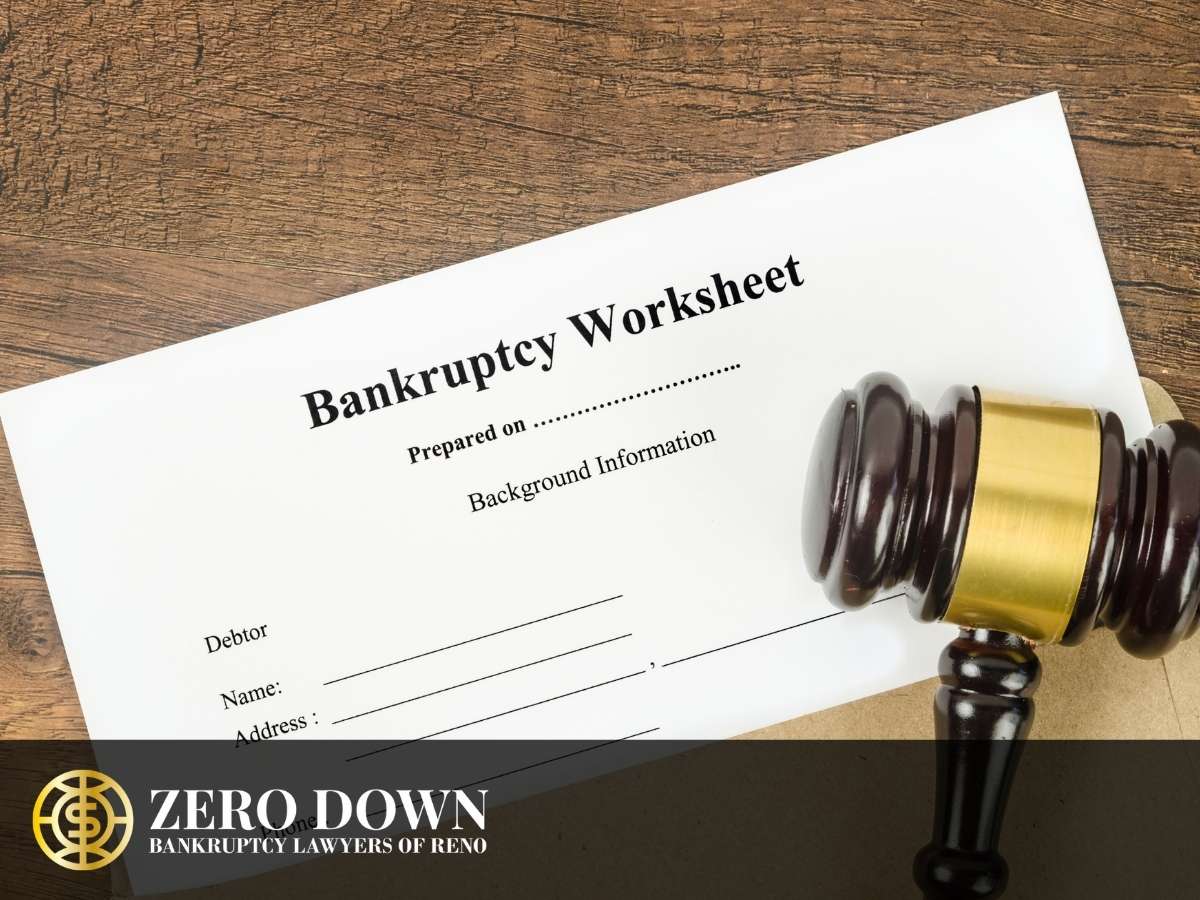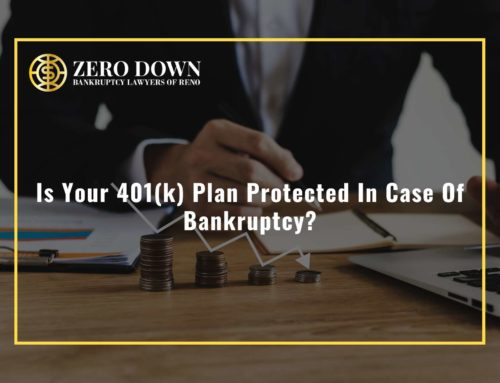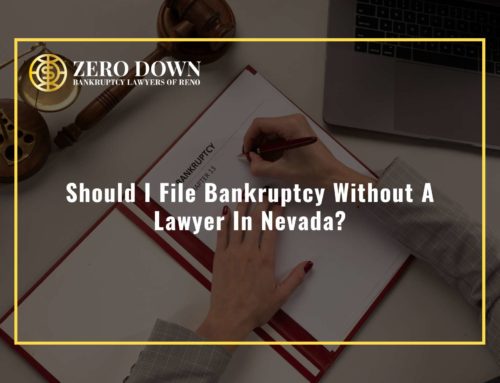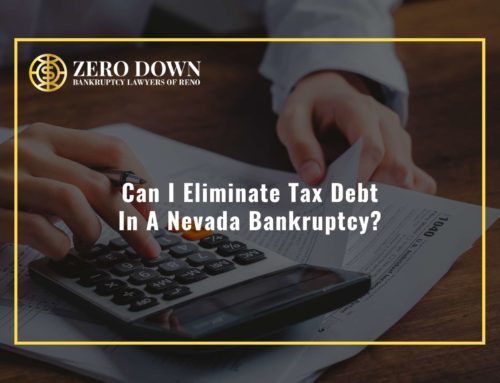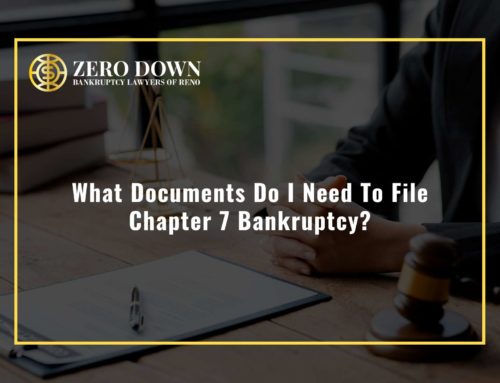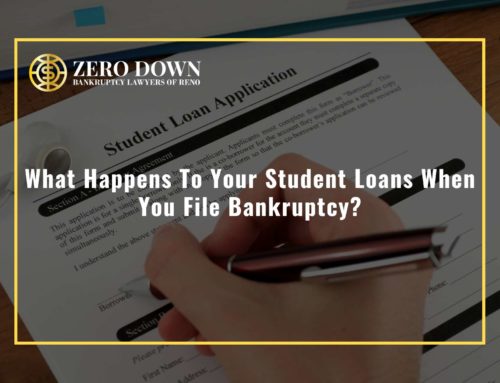Common Mistakes When Filing For Bankruptcy In NV
Avoid Huge Losses By Considering These Recommendations
For many people, bankruptcy can be an effective financial decision that eliminates your debt and helps you get a fresh financial start. But if you try to file bankruptcy without a Reno bankruptcy attorney, you might find yourself with costly mistakes that can result in huge losses and be almost impossible to fix. Learn more about these common mistakes and how to avoid them.
Making Payments To Friends & Relatives
If you owe money to a private party, you’ll naturally want to pay off the debt before you file, but this is a big mistake with frustrating consequences to your friends and relatives. Any payments that you make within one year, and sometimes two years, prior to filing bankruptcy will be undone, and the trustee will be able to recoup that money from the person you paid, leaving your friend or relative with nothing. This also applies to financial gifts that you give to someone. Unless you have a legal obligation to support that person, the trustee can – and will – get the money back.
Transferring Property Before Filing
Similar to the previous mistake, if you transfer property, such as real estate or a vehicle, to friends or relatives within one year before filing Reno chapter 7 bankruptcy, your transfer will be undone. Property can be sold to friends and relatives before you file, but it must be for market value and you must provide proof that you actually received the payment.
Misusing Tax Returns
Your tax returns, including for the previous year, can be taken as part of the bankruptcy process, although it may be prorated depending on which time of year you file. To avoid this loss, you will need to spend it on appropriate expenses, such as paying off debts, before you file for bankruptcy. Losing at least part of a tax refund may be unavoidable, but working with a Reno bankruptcy law office can help properly time your bankruptcy filing so you lose as little as possible.
Owning Real Estate That Is Not Your Home
If you own real estate but do not live in it, it is not protected for your bankruptcy filing and may be garnished by the bankruptcy trustee. This includes rentals, summer homes, and parcels of hunting land. If the value of the land is greater than the mortgages on it, it may be sold as part of your bankruptcy filing.
Making a Personal Injury Claim
If you’ve been injured and chosen to file a personal injury lawsuit, the bankruptcy trustee will take all of the money to pay your creditors, unless you received money before you filed for bankruptcy. Unfortunately, this is a common scenario after vehicle accidents. If the injured person needs medical care and is unable to work, they may file a claim with the other driver’s insurance company or with their own, but it can take months or years for personal injury claims to be settled and to actually receive the payment. In the meantime, medical bills are due and the person is still not working, which can lead them to file for bankruptcy. However, if the insurance company has not yet paid, the injured person will not get any of the money; instead, it will go to the trustee and be used to pay creditors. If you choose to file bankruptcy after a personal injury claim, you’ll want to work with a Reno bankruptcy lawyer who can advise you on the timing so you make the most of the settlement.
Receiving an Inheritance After Filing
This can be a frustrating situation because it’s usually out of your control, but if you become entitled to an inheritance within a certain time frame after you file bankruptcy, the trustee will get as much of it as is needed to pay off your creditors. Unfortunately, it doesn’t matter if you knew about the inheritance beforehand, or when you actually get the money. You could lose the inheritance even if the money is not distributed until several months or years after the death. Before you file bankruptcy, it’s important to know whether you are entitled to an inheritance.
Can These Mistakes Be Corrected?
In many cases, yes, a Reno bankruptcy law office can help you correct these mistakes, but the process may be different depending on whether they were caught before or after you file for bankruptcy. Your attorney may suggest Chapter 13 bankruptcy as a solution if you need to file but have extenuating circumstances, such as owning a rental home that you want to keep. Chapter 13 bankruptcy enables you to keep your property and make arrangements to pay off your debts in an agreed upon amount and time frame. Regardless of how you choose to file, it’s best to work with an experienced Reno bankruptcy attorney who can help you understand your options so you can make the best financial decisions for your situation.
Get Bankruptcy Advice From an Experienced Legal Team in Reno
Are you overwhelmed with your finances and not sure where to turn? Talk with the compassionate and experienced attorneys at Zero Down Bankruptcy Lawyers of Arizona. Our team is ready to help you understand your options and rights, with no money down! Schedule your free, personalized, and professional consultation by calling our office today!

Zero Down Bankruptcy Lawyers Of Reno
Email: info@renobankruptcylawyer.co
Phone: (702) 842-0700
Las Vegas:
5552 Ashley Creek St
Las Vegas, NV 89135
North Las Vegas:
7251 W Lake Mead Blvd
Las Vegas, NV 89128
Henderson:
1489 W Warm Springs Rd #110
Henderson, NV 89014

